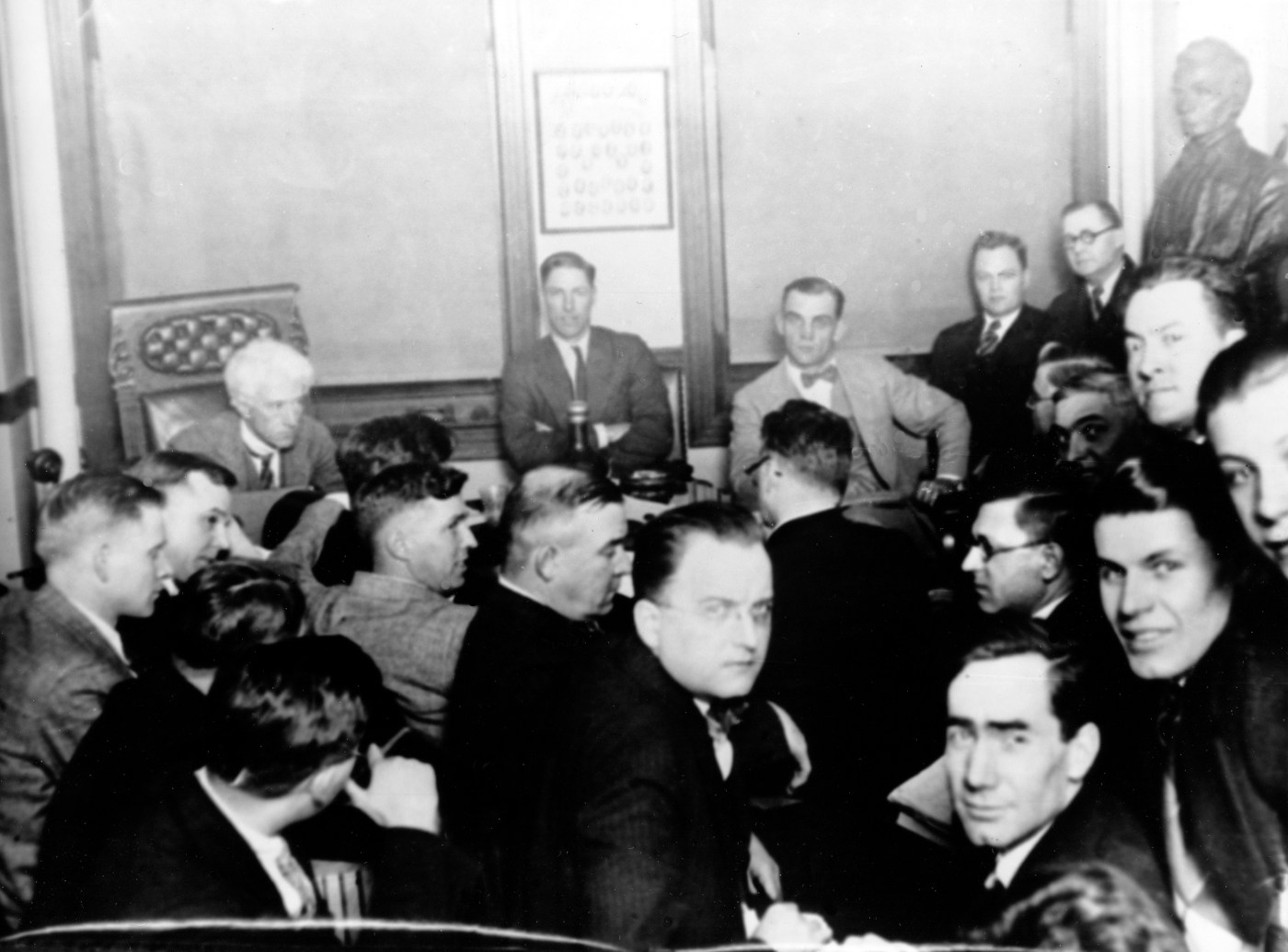
St. Paul can be proud of Suni Lee and Joe Mauer — but let’s keep quiet about this guy
It’s been a great few weeks for St. Paul-born sports stars — Joe Mauer was enshrined in the Baseball Hall of Fame on July 21, and Suni Lee has captured a couple of Olympic medals in Paris and still has a chance for some more.
St. Paul should be proud. But just for balance, it’s also Aug. 2, which is the anniversary of a key event in one of the nation’s biggest sports scandals: The 1919 Black Sox fiasco. And a St. Paul native had a big role in that.
RELATED: Suni Lee’s gold medal through the eyes of family and friends
The quick story: In 1919, the Cincinnati Reds defeated the heavily favored Chicago White Sox in baseball’s World Series. But it turned out that several White Sox players had been conspiring with gamblers to throw the series.
It was on Aug. 2, 1921, that a jury acquitted the accused players — including one of the all-time greats, Shoeless Joe Jackson — of conspiracy in the case, but the baseball commissioner banned them from the game for life anyway.
Despite the acquittal, and despite ongoing protests of innocence from some of the banned players, others admitted the scheme during later years. The ringleader in the conspiracy among the players was first baseman Charles “Chick” Gandil, born in … yep, St. Paul.
Now, before you come down too hard on the Saintly City, let it be known that Gandil may have been born here in 1888, but he doesn’t seem to have stayed long. His family quickly moved out to the West Coast, first to Seattle and then to California.
During his teens, he knocked about on the coast and the Southwest, playing amateur and semipro ball in places like Fresno, Calif.; Amarillo, Texas; and Mexico, too. In Mexico, he and a teammate worked in a copper mine between games.
As far as I know, Joe Mauer never did that.
Gandil was also a multisport athlete, like Mauer — he was apparently a star bowler and then started doing some boxing, as well, including heavyweight matches.
Gandil apparently was already acquiring a bit of a reputation even by 1907. It was at that time, according to an article at the Society for American Baseball Research, that his father took out an ad in the Los Angeles Times that said:
“NOTICE – TO WHOM IT MAY CONCERN, I will not be responsible for any debts my son Arnold, sometimes called Chic, may contract on or after this date, July 11, 1907. C. Gandil.”
In 1909, Gandil tried to jump from the Fresno Giants to the Pacific Coast League’s Sacramento Senators, but Fresno had him arrested and jailed on an accusation that he had tried to run off with $225 the team had advanced him. The Sacramento team bailed him out.
It was in Sacramento in 1909 that he was noticed by Charles Comiskey.
Comiskey was a ballplayer of the 1880s and 1890s who went on to own the St. Paul Saints. And then he moved the Saints to St. Paul for the 1900 season and renamed them the Chicago White Stockings, later shortened to White Sox.
Comiskey acquired Gandil for the White Sox, and he made his debut with them in 1910. He didn’t stick around long, bouncing a few more places before establishing himself in the American League with the Washington Senators (who would many years later become the Twins) and then rejoined the White Sox in 1917, just in time to win a World Series.
In 1919, Gandil and the White Sox were back in the Series, to play the underdog Reds. Gandil had hit .290 that year and was a regular, though he wasn’t a star of the team. He apparently was a leader, though, and not in a good way. Accounts vary, but Gandil seems to have been the first of the conspirators to meet with the gamblers and discuss losing the series on purpose — and agreed on an $80,000 payout. And it was in Gandil’s hotel room that the bulk of the players who joined the scheme first signed on.
The Sox did indeed lose the series, though several of the players who were later banned did not seem to play particularly badly. Joe Jackson, famously, hit .375 in the Series. Afterward, Gandil argued with Comiskey over his salary for 1920 and wound up retiring.
Over the next year, rumors that the Series had been fixed grew louder, and an investigation led to the indictment of Gandil and seven teammates — and five gamblers — in 1921. There was a trial in Chicago, with lots of twists and turns, including the mysterious disappearance of signed confessions from two of the star players, Eddie Cicotte and Jackson. On Aug. 2, 1921, a jury acquitted the players of conspiracy to defraud the public.
The next day, baseball commissioner Kenesaw Mountain Landis banned the eight players from the game permanently.
In later years, Gandil played in semi-pro ball and gave interviews in which he admitted his role in the scandal, and even expressed some remorse. He died in California in 1970, age 82.
Just maybe it wouldn’t have turned out that way if he’d grown up in his birth town.
Related Articles
One more Minnesota-born baseball star in the Hall of Fame you might not know
Video: Watch as Joe Mauer’s plaque goes up in the Hall of Fame
Appreciation runs deep, on both sides, for Hall of Famer Joe Mauer
From St. Paul to the Hall: Twins legend Joe Mauer inducted into Hall of Fame
Joe Mauer’s Hall of Fame plaque says it all in two words: ‘Lifelong Twin’


